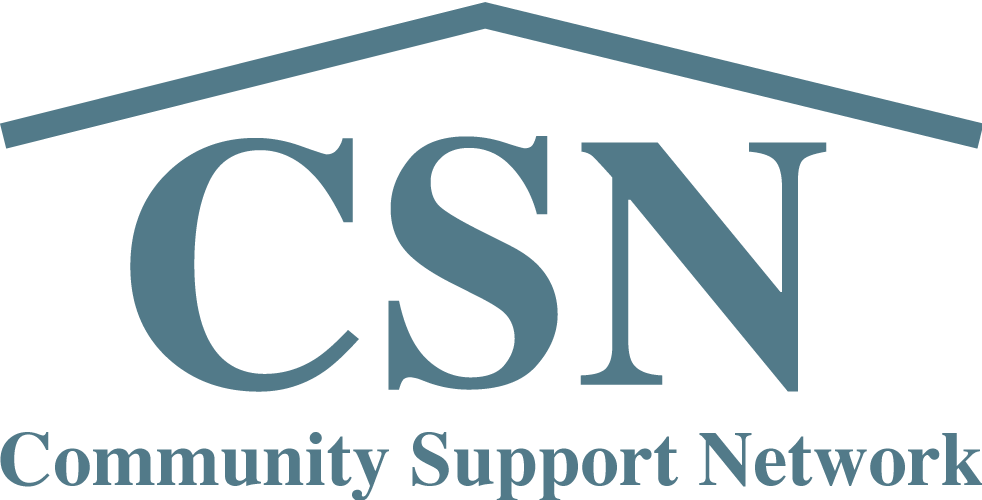Sanctuary Villas: Critically Needed Housing for Sonoma County’s Transition Age Youth
With a rate of youth homelessness three times the national average, Sonoma County urgently needs more supportive housing to get vulnerable young people off the streets and into a supportive environment where they can establish safety and work towards self-sufficiency. The 2018 Sonoma County Homeless Count located 532 homeless Transition Age Youth, ages 18-24. 39% of these young people had experienced foster care, and over half had significant behavioral health challenges. A history of foster care is a known risk factor for homelessness, and while there are 207 homeless former foster youth living in Sonoma County, only 75 dedicated beds are available to house them, most of which are in timelimited transitional housing programs.
According to the National Child Traumatic Stress Network, homeless youth have “…significant mental health problems, including depression, anxiety disorders, posttraumatic stress disorder (PTSD), suicidal ideation, and substance abuse disorders.” Foster youth have by definition suffered the trauma of abuse, neglect, or abandonment, and this trauma manifests in a range of challenges. This is one of the reasons only 4% of former foster youth graduate from college with a 4-year degree compared with 34% of the general population. Foster youth and other vulnerable youth who become homeless can only recover from trauma and build the skills necessary to overcome their challenges in a place of safety and stability.
“I have been watching my peers struggle to find housing and stay housed since before I left foster care. This project would be a dream come true for many youth just trying to get their foundation in the adult world, and I can’t wait for it to become a reality!”
—Sunshine Hartwell, After 18 Cohort Member
In June 2018, CSN purchased an 8 bedroom property at 5596 North Raters Drive in Santa Rosa. The property is located in a beautiful residential neighborhood, just off Highway 12 and near several parks. The home is designed to support the development of community, with a large kitchen, welcoming common areas and outdoor spaces, and semi-private accommodations. The property is walking distance from a grocery store and other essential services, and on Sonoma County Transit’s 30 and 34 bus lines, allowing easy access to central Santa Rosa and Sonoma State University. The home will accommodate up to 10 residents at a time. CSN staff will support each client in taking advantage of opportunities for both individual and social growth.
Letter from the Director
 Dear Community:
Dear Community:
For the past several years, CSN has proudly supported the work of Sonoma County’s After 18 Foster Youth cohort, a group of transition age foster youth convened by our partner VOICES Youth Center to develop recommendations for improving outcomes among local foster youth. One of the cohort’s primary recommendations is to create a new wellness-focused housing program to provide a home and sense of community to young people working to overcome traumatic childhoods and launch a bright, independent future. The cohort found inspiration in CSN’s Sanctuary House, and asked us to take the lead on carrying out their vision by building a new program to support current and former foster youth from Sonoma County. We were thrilled to commit to doing so, and are calling the program Sanctuary Villas.
Over the past several months, we’ve been collaborating with youth on the program design, working with Sonoma County’s public agencies to secure long-term resource commitments, and raising money to acquire and renovate a suitable property.
In early June, we closed escrow on 5596 North Raters Drive in Santa Rosa, just off Highway 12. The home is well designed to support the development of community with a large kitchen, welcoming common areas, and a walking path that leads to a grocery store and bus stop less than a quarter of a mile away. The home is located in an exceptionally nice area of town, providing residents the opportunity to be surrounded by positive influences. Within days, we were able to receive approval from the city to provide supportive housing to up to 14 transition age foster youth at the site. We’re currently working to finance and complete a number of essential repairs and renovations, with a goal of opening Sanctuary Villas in 2019.
To date, we’ve secured over $700,000 against our total Capital Campaign goal of $2 million. On June 23, CSN hosted our 2018 Lu’au Fundraiser, and we were honored to welcome over 200 guests to enjoy traditional Hawaiian food, music, and dance. We were especially excited to announce a $300,000 gift from the Sonoma County Children’s Village to the Capital Campaign. We are also thrilled to have received a $100,000 gift from the Ernest L. and Ruth W. Finley Foundation. The momentum is building, and CSN is both humbled and energized by the extraordinary support of our community and the faith that it represents in our ability to effectively serve Sonoma County’s most vulnerable residents.
It’s an honor to have been asked by the After 18 Foster Youth to help support their brothers and sisters from foster care who struggle to avoid homelessness and forge a brighter future. I very much hope you’ll join us in making Sanctuary Villas a reality.
Sincerely,
Tom Bieri, MFT
Executive Director
Community Support Network
Every aspect of Sanctuary Villas will be co-planned with youth themselves. CSN collaborates with Sonoma County’s After 18 group, a cohort of local former foster youth who advocate for additional support for area youth, including additional wellness-focused housing options for youth exiting foster care. The After 18 youth approached CSN with the idea of developing Sanctuary Villas after seeing several TAY with complex trauma and addiction backgrounds have successful recovery experiences at CSN’s Sanctuary House program. The remarkable progress made in the last year by the Sanctuary House residents speaks to the quality of the staff and the programming:
- 100% have not returned to homelessness.
- 100% have reported that using positive coping skills learned at CSN has helped them in their recovery from trauma.
- 90% have made gains in the areas of income.
- 90% have made gains in the areas of employment and/or education.
The catastrophic fires that swept across Sonoma and Napa Counties in October 2017 destroyed thousands of homes, shuttered businesses, disrupted transportation networks and infrastructure, and left residents deeply traumatized. Since then, housing costs have skyrocketed.
For foster youth, who have already experienced so much trauma, the fires and their fallout only compound their challenges.
Transition age foster youth in Sonoma County need Sanctuary Villas now more than ever.
“The coping skills that we work on are positive ways to deal with mental, physical and emotional challenges. The weekly group meetings have been really helpful to me because we set two to three goals every week, and we do it week after week. It has helped me change my habits, all toward the positive. Last semester I got the highest score in the class on a lot of my assignments. That’s something that hadn’t happened to me since I was in middle school.”
—Previously homeless Sanctuary House resident
There is no greater joy than giving youth the gift of safety and hope.
The Campaign
CSN has launched a Capital Campaign to finance the development of Sanctuary Villas and provide transition age youth the foundation they need to build healthy and successful lives.

UPDATE: Thank you to the generous investors in the capital campaign! As of July 2019, the Sanctuary Villas Capital Campaign has reached its goal and is closed.
Our Partners and Supporters
- Sonoma County Human Services Department
- TLC Child & Family Services
- Social Advocates for Youth
- Sonoma County Community Development Commission
- VOICES/On the Move
- Sonoma County Children’s Village
- Ernest L. and Ruth W. Finley Foundation
- The Sonoma County Community Development Commission
- The Negley Flinn Foundation
- Martinelli Vineyards and Winery
For more information, call CSN’s Executive Director, Tom Bieri, at (707) 575-0979 ext. 100 or email, tom@csn-mh.com.
—–
Community Support Network (CSN) is a recognized leader in the provision of supportive housing to Sonoma County’s transition age youth (TAY) who struggle with the ongoing effects of trauma and addiction. CSN’s mission is to help individuals with behavioral health challenges realize their potential by providing hope, wellness, and high quality supportive housing. Founded in 1972 to provide a safe place for individuals to stabilize, recover, and grow without having to enter an institutional setting, CSN’s model provides programming in small supportive homes located in vibrant residential areas throughout Sonoma County. The agency now operates nine supportive housing programs where clients achieve self-sufficiency by acquiring independent living skills, positive coping strategies, and educational and vocational opportunities.

